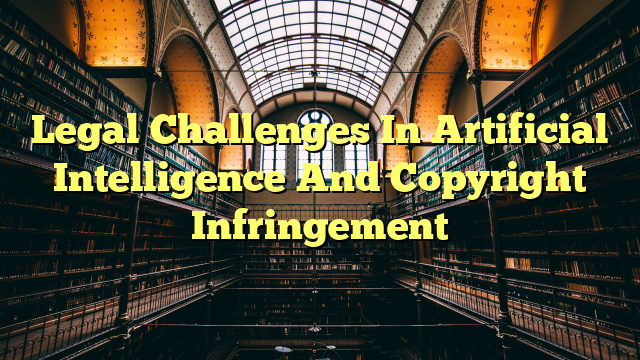Table of Contents
- Key Legal Issues of Artificial Intelligence
- Can Artificial Intelligence Hold Copyright?
- Issues of Copyright and Ownership in AI Art
Key Legal Issues of Artificial Intelligence
The development of artificial intelligence (AI) has raised a number of legal issues, most of which center around copyright law. AI creates a unique challenge to the traditional copyright system because the product of AI is often of uncertain ownership. AI programs can learn, evolve, and produce new works with no human involvement. This creates a problem for copyright protection, as a work created by AI has no clear author or owner.
Another key legal issue is whether AI has the capacity to infringe copyright. AI can produce works that are similar to, or even identical to, existing works. This raises the question of whether AI can be found liable for copyright infringement. This is an important issue, as AI is increasingly used to generate new works.
Finally, AI raises the question of how authorship and ownership should be determined. AI programs are often highly complex and autonomous, making it difficult to determine who or what is responsible for the creation of a given work. This makes it difficult to decide who should be given credit for, or ownership of, a given work.
Can Artificial Intelligence Hold Copyright?
The copyright law generally grants exclusive rights to authors of creative works. As AI is not a physical person, it is unclear whether it has the capacity to own copyright. The answer to this question is still largely uncertain, as courts have not yet issued rulings on this issue.
One argument against AI holding copyright is that AI programs are not considered to be “persons” under the law. As copyright is generally granted to human authors, AI programs cannot be considered authors for the purposes of copyright protection.
Another argument is that copyright is intended to incentivize creativity, and AI is not capable of creating works of its own volition. Rather, AI simply takes existing works and modifies them to create something new. While this may be creative, it does not meet the standard of creativity required for copyright protection.
Issues of Copyright and Ownership in AI Art
AI art is an emerging field, and it raises a number of interesting issues in terms of copyright and ownership. As AI art is often created with no human input, it is difficult to determine who or what should be given credit for a given work. This raises the question of whether AI itself should be considered the “author” of a given work.
Another issue is how to determine ownership of AI art. If a work is created by an AI program, who owns the rights to the work? Who is responsible for any royalties that may be due? These are important questions that have yet to be answered.
Finally, AI art raises the question of whether the works should be given copyright protection. As AI art can often be highly derivative of existing works, it is unclear whether copyright should be granted to AI-generated works. This is an important issue that has yet to be resolved.
In conclusion, the development of artificial intelligence has raised a number of legal issues, most of which center around copyright law. These issues are complex and still largely unresolved. In order to protect the rights of authors, and to ensure that AI-generated works are given appropriate protection, it is important that these issues are addressed.

